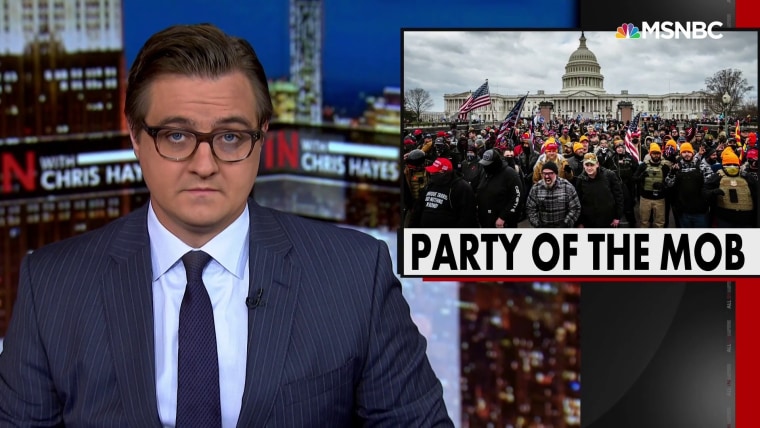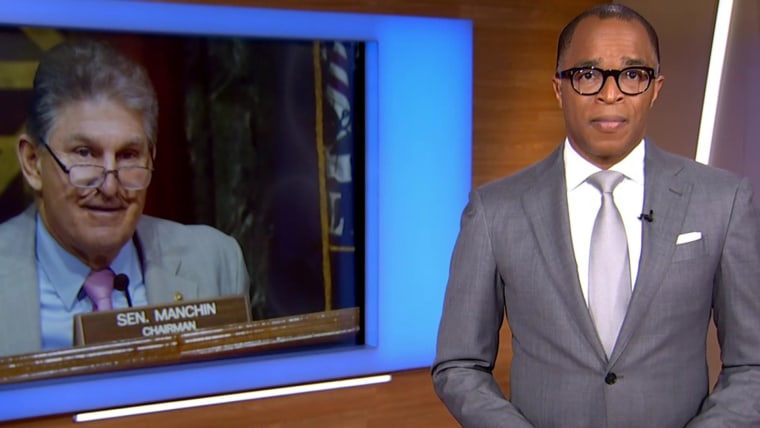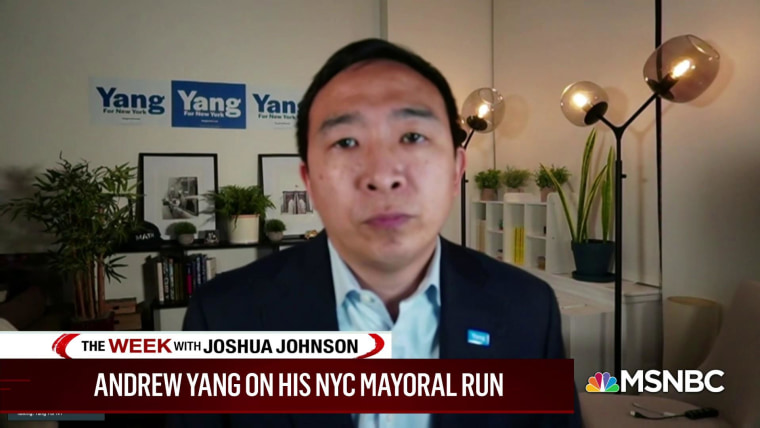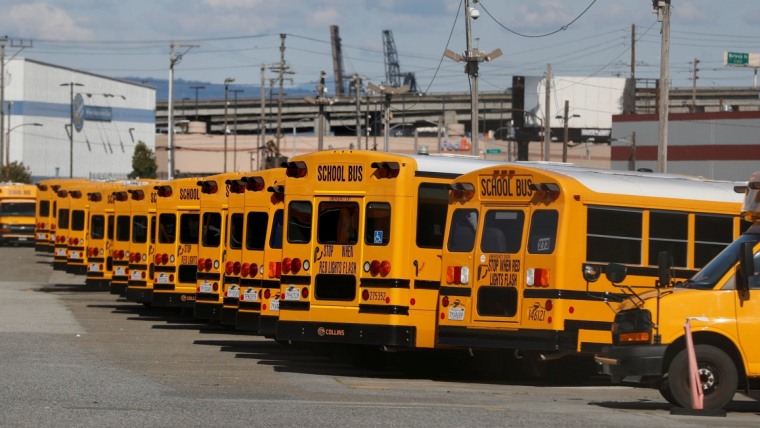A collection of opinionated commentaries on culture, politics and religion compiled predominantly from an American viewpoint but tempered by a global vision. My Armwood Opinion Youtube Channel @ YouTube I have a Jazz Blog @ Jazz and a Technology Blog @ Technology. I have a Human Rights Blog @ Law
Monday, May 31, 2021
Sunday, May 30, 2021
Saturday, May 29, 2021
Most Ga. COVID restrictions end soon; no outright ban on school mask mandates. (The country’s most uninformed governor. Put down the Budweiser)
Most Ga. COVID restrictions end soon; no outright ban on school mask mandates
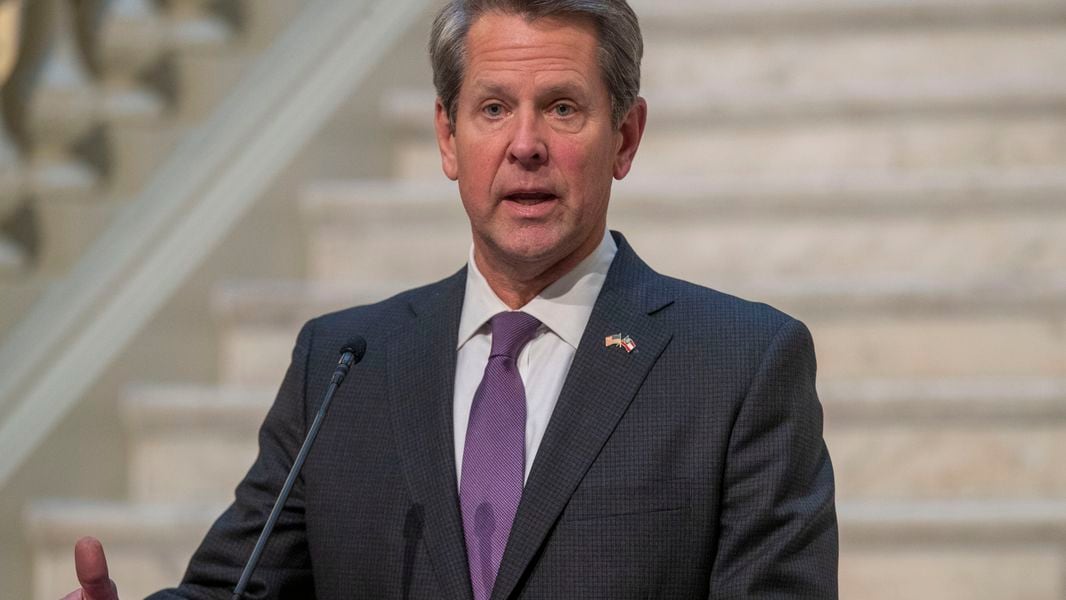
Credit: Alyssa Pointer / Alyssa.Pointer@ajc.com
Most of Georgia’s remaining coronavirus restrictions will end Memorial Day under an executive order signed by Gov. Brian Kemp.
The 22-page order he signed Friday continues a broader rollback of Georgia’s coronavirus regulations as millions of residents are inoculated. The order lifts restrictions on restaurants, bars, conventions, child care facilities and live performance venues.
And it seeks to restrict Georgia’s public school districts from mandating that students and employees wear masks, though it falls short of an outright ban. Kemp’s support for that move triggered sharp backlash from some parents, administrators and legal scholars
It follows an earlier order that rolled back requirements for restaurants to practice social distancing and ended safety guidelines designed for gyms, movie theaters, barbershops and other close-contact businesses.
“As hospitalizations, cases, deaths and percent-positive tests all continue to decline — and with vaccinations on the rise — Georgians deserve to fully return to normal,” said Kemp, a first-term Republican facing a challenging reelection next year.
Under the new order, which takes effect Monday, only a handful of coronavirus restrictions remain in place, most involving nursing homes, long-term care facilities and schools. The governor has also taken steps to ban state agencies from requiring vaccinations, saying it amounts to government interference.
The order also specifies that public schools cannot use an ongoing state of emergency to require students or staffers to wear masks. But he didn’t explicitly forbid school systems from mandating face coverings.
The wording of the order led Anthony Kreis, a constitutional law professor at Georgia State University, to conclude it was “pretty toothless” because it didn’t amount to an outright ban.
“It doesn’t appear to command schools to stop masking mandates as much as Kemp is saying to local boards, ‘You can’t point to me as your reason for doing so,’ ” Kreis said.
Georgia’s fight against the pandemic has dramatically improved as the vaccine became widely available. Hospitalizations have plummeted in recent months, and more than 3.2 million Georgians — or roughly one-third of the state — have been inoculated. Still, Georgia lags most other states in the distribution of the vaccine.
Some public health experts warn of the risk of new cases fueled by emerging variants, particularly from virus-ravaged India. School officials also worry about the threat of more outbreaks among a student population that is still largely unvaccinated. Children under 12 years old still aren’t eligible for vaccinations, and only a small fraction of teens have received the doses.
Kemp, however, said the time for government mandates involving coronavirus restrictions is over.
“With safe and effective vaccines widely available and the public well aware of all COVID-19 mitigation measures, mandates from state and local governments are no longer needed,” he said.
New coronavirus order
Gov. Brian Kemp’s new COVID-19 order, which takes effect Monday, leaves safety guidelines and restrictions in place at only a few facilities, including:
- Nursing homes
- Long-term care facilities
- Public schools
About the Author
Greg Bluestein is a political reporter who covers the governor's office and state politics for The Atlanta Journal-Constitution.
Friday, May 28, 2021
Senate's Capitol commission vote highlights Manchin's filibuster ignorance
Senate's Capitol commission vote highlights Manchin's filibuster ignorance
UPDATE (May 28, 2021, 12:30 p.m.): On Friday, 35 Senate Republicans voted against opening debate on an independent bipartisan commission to investigate the Jan. 6, 2021 attack on the U.S. Capitol, effectively killing the commission. It was the first filibuster of this year.
As Senate Republicans line up to block a bipartisan commission to investigate the Capitol insurrection, it seems increasingly likely that they will use the filibuster to prevent passage of the measure.
A “filibuster,” in the language of the day, was a plunderer or a pirate.
Democrats could do away with this resistance with a simple party-line vote to end the filibuster, but they have been hamstrung by the stubborn resistance of Sens. Joe Manchin of West Virginia and Kyrsten Sinema of Arizona.
Manchin, asked Thursday whether he might finally vote to end the filibuster if Republicans used it to block the commission, responded reflexively: "I'm not willing to destroy our government, no."
But the senator has it exactly backward — it is the filibuster that is destroying our government.
The Founding Fathers, who designed Congress to be run on simple majorities, would have seen the filibuster as a perversion of their vision for the Senate. Despite recent claims about its centrality in the Senate's working, the filibuster was not a product of the founders' work, and it has never been enshrined in the Constitution. It came about after the fact, largely by accident, enabled by a loophole in the Senate's rules and a willingness of some members to exploit it.
The name given to the new practice in the mid-19th century showed what contemporary Americans thought of it at the time. A "filibuster," in the language of the day, was a plunderer or a pirate. Those who employed the newly invented scheme to block legislation and prevent progress in the Senate were seen, metaphorically, as exactly that — pirates who had hijacked the legislative chamber and steered it to their own ends.
Half of all successful filibusters between 1917 and 1994 were employed to block civil rights measures.
We only need to look at the senators who used the filibuster most often to understand why that word was so well-chosen.
The most prominent champion of the filibuster in the 19th century was Sen. John C. Calhoun, D-S.C. An outspoken defender of slavery, Calhoun advanced a number of novel constitutional rationales and legal propositions to protect, preserve and expand the enslavement of African Americans. His most famous measure, the theory of "nullification," the idea that states could effectively opt out of national developments they didn't like, set the stage for secession and the Civil War (and, in a few years, the creation of Manchin's state of West Virginia).
Before that cataclysm, Calhoun was instrumental in introducing and institutionalizing the filibuster. Taking advantage of the Senate's rules, which then allowed for virtually unlimited debate, he repeatedly stole the Senate's time and energy, like a pirate, to prevent passage of any legislation that threatened the ability of his fellow Southern whites to keep men, women and children in chains.
Not surprisingly, Calhoun's political heirs in the 20th century — segregationist Southern Democrats — followed his lead. They cribbed his discredited theories of "nullification" with their own theories of "interposition," in which they, too, claimed that states had a right to opt out of federal mandates, referring here to court decisions like Brown v. Board of Education.
But segregationists also copied Calhoun's use of the filibuster, which they employed with even greater regularity and ruthlessness.
Ellender wasn’t alone in using the filibuster to fight for white supremacy.
To give just one example of many, when anti-lynching legislation advanced to the Senate in 1937 after a horrific wave of bloody murders and graphic mutilations in the South, Southern Democrats banded together to filibuster the bill for six straight weeks. "I believe in white supremacy!" Sen. Allen Ellender of Louisiana shouted, "and as long as I am in the Senate, I expect to fight for white supremacy!"
More from MSNBC Daily
Must reads from Today's list
Ellender wasn't alone in using the filibuster to fight for white supremacy. According to one study, half of all successful filibusters from 1917 to 1994 were employed to block civil rights measures. The filibuster's frequent use by segregationists has increasingly led observers, including former President Barack Obama, to denounce it as a "Jim Crow relic."
There's nothing inherently racist in the filibuster itself, of course. But racists regularly relied on it. And they did so precisely because it reflected their underlying belief that America was not a true democracy and, more important, because it enabled them to ensure that America did not become a true democracy.
Defenders of slavery and defenders of segregation refused to accept any compromise when it came to the fight for white supremacy; naturally, they used the legislative tool that was designed to prevent compromise. Like pirates, they commandeered the political system, held its regular order hostage and demanded that everyone else, no matter how large the majority, bend to their minoritarian demands. They were willing to break our government to get their way, and the filibuster afforded them the chance.
Today, the filibuster stands in the way of an investigation into the insurrection, when an unruly mob invaded the Capitol and threatened our government, including members of the Senate itself. If that body cannot back a bipartisan commission to explore the causes and costs of that insurrection, then it will be clear that our government is in worse shape than we might think. It will be well on its way to destruction, and the filibuster — and the senators who defend it at all costs — will be to blame."
Senate Republicans Filibuster Jan. 6 Inquiry Bill, Blocking a Capitol Riots Investigation - The New York Times
Senate Republicans Filibuster Jan. 6 Inquiry Bill, Blocking an Investigation
"The vote killed the best chance for an independent accounting of the deadly Capitol attack, which Republicans feared would damage them politically.

WASHINGTON — Republicans on Friday blocked the creation of an independent commission to investigate the Jan. 6 Capitol riot, using their filibuster power in the Senate for the first time this year to doom a full accounting of the deadliest attack on Congress in centuries.
The vote was a stark display of political self-interest by Republicans determined to shield themselves from an inquiry that could have publicly tarnished their party. They feared an investigation that would remind voters of the consequences of Donald J. Trump’s election lies and how Republican lawmakers indulged them, spurring their supporters to violence.
It all but guaranteed that there would be no comprehensive nonpartisan inquiry into the attack’s root causes, the former president’s conduct as his supporters threatened lawmakers and the vice president, or any connections between his allies in Congress and the rioters.
While members of both political parties agreed in its immediate aftermath that an investigation was needed, most Republicans have since toiled to put the episode behind them, and some have actively sought to deny or play down the reality of what happened.
On Friday, only six Republicans joined Democrats to support advancing the measure to create the independent commission. The final vote, 54 to 35, fell short of the 60 senators needed to move past a Republican filibuster.
The vote was a stinging defeat for proponents of the commission. They had argued that the only way to assemble a truly complete account of the riot for a polarized nation was through an inquiry modeled after the one into the Sept. 11, 2001, attacks, in which outside experts with subpoena power undertook a thorough study.
Some Republicans expressed disgust with their own party for blocking it, saying that they had put politics over the finding of what promised to be a grim set of facts.
“I don’t want to know, but I need to know,” said Senator Lisa Murkowski of Alaska, one of the six Republicans who voted to form the commission. “To be making a decision for short-term political gain, at the expense of understanding and acknowledging what was in front of us on Jan. 6 — I think we need to look at that critically.”
While the Justice Department has opened hundreds of criminal cases against rioters, and congressional committees are likely to expand nascent inquiries, they will almost certainly confront limits that a commission staffed with national security experts, jointly appointed by Republicans and Democrats, would not. Among them are partisanship, defiant witnesses and turf wars that are likely to leave unanswered key questions about how the party rallied around Mr. Trump’s stolen-election lies and his demands that Republicans invalidate Joseph R. Biden Jr.’s victory.
“Do my Republican colleagues remember that day?” Senator Chuck Schumer, Democrat of New York and the majority leader, asked moments after the vote. “Do my Republican colleagues remember the savage mob calling for the execution of Mike Pence, the makeshift gallows outside the Capitol?”
“Shame on the Republican Party for trying to sweep the horrors of that day under the rug because they are afraid of Donald Trump,” he added.
Top Republicans had entertained supporting the measure as recently as last week. But they ultimately reversed course, and the House approved it with only 35 Republican votes. Leaders concluded that open-ended scrutiny of the attack would hand Democrats powerful political ammunition before the 2022 midterm elections — and enrage a former president they are intent on appeasing.
“I do not believe the additional extraneous commission that Democratic leaders want would uncover crucial new facts or promote healing,” Senator Mitch McConnell of Kentucky, the Republican leader, said on the eve of the vote. “Frankly, I do not believe it is even designed to do that.”
Though Mr. McConnell said he would continue to support criminal cases against the rioters and stand by his “unflinching” criticisms of Mr. Trump, the commission’s defeat is likely to only embolden the former president at a time when he has once again ramped up circulation of his baseless and debunked claims. Republicans had already saved Mr. Trump from conviction in two impeachment trials.
In a matter of months, his lies have warped the views of many of his party’s supporters, who view President Biden as illegitimate. They have also inspired a rash of new voting restrictions in Republican-led states and a quixotic recount in Arizona denounced by both parties. And they have fueled efforts by Republican members of Congress to diminish and reframe the Capitol riot as a benign event akin to a “normal tourist visit.”

“People are just now beginning to understand!” Mr. Trump wrote in a statement on Thursday.
Democrats denounced the vote and warned Republicans that preventing an independent inquiry would not shield them from confronting the implications of Mr. Trump’s attacks on the democratic process.
Mr. Schumer and Speaker Nancy Pelosi are now planning their own committee investigations into the attack, how it was coordinated and why the government failed to prevent an assault that left several dead, the Capitol ransacked and those inside at risk.
Ms. Pelosi could also set up a select committee focused solely on the attack, handing Democrats unilateral subpoena power and a much longer timeline to investigate whatever they want. Mr. Schumer seemingly endorsed the idea on Friday afternoon, saying that it was “better to investigate with a select committee than not investigate.”
Progressives seized on Republicans’ opposition to the commission as new justification to press their case for invoking the so-called nuclear option to rewrite the filibuster rule and allow bills to pass on simple majority votes. Activists have pressed Democratic leaders to do so, and then skirt Republican opposition to enact pressing liberal priorities, like a sweeping voting rights measure, gun control legislation, legalization of undocumented immigrants and more.
“If the Republicans can’t agree to an independent commission investigating the first armed insurrection at the Capitol in our nation’s history, then something is bad wrong,” said Senator Elizabeth Warren, Democrat of Massachusetts. “And that something is the filibuster.”
But changing the rules would require the agreement of all 50 Democrats, and at least two oppose the move. One of them, Senator Joe Manchin III of West Virginia, said that his position was unchanged.
“I’m not willing to destroy our government, no,” he said.
Still, after an 11th-hour scramble with Senator Susan Collins, Republican of Maine, to draft a compromise to address some of her party’s stated concerns about the legislation, Mr. Manchin concluded that most would not support it and were simply cycling through disingenuous reasons to vote no.
“I’m very, very disappointed, very frustrated that politics has trumped — literally and figuratively — the good of the country,” he told reporters after the vote.
The six Republican senators who voted to advance debate on the commission included Ms. Collins, Bill Cassidy of Louisiana, Ms. Murkowski, Rob Portman of Ohio, Mitt Romney of Utah and Ben Sasse of Nebraska. All but Mr. Portman had voted at an impeachment trial in February to find Mr. Trump guilty of inciting the insurrection.
A seventh Republican, Senator Patrick J. Toomey of Pennsylvania, missed the vote — one of 11 senators to do so — but said he would have voted to advance debate on the commission.
Mr. Cassidy argued his party was also making a strategic mistake in blocking the commission, giving Democrats reason to pursue partisan investigations of what happened on Jan. 6 “with or without Republicans.”
“To ensure the investigations are fair, impartial and focused on the facts, Republicans need to be involved,” he said.
After his own flirtation with supporting the bill, Mr. McConnell worked aggressively to quash support. To convince his colleagues that Democrats were acting in bad faith, despite the bipartisan nature of the commission, Mr. McConnell circulated an interview with James Carville, the Democratic strategist, urging his party to “make the Republicans own that insurrection every day.”
It was a marked shift for Mr. McConnell, reflecting how his political calculus has changed since Jan. 6. Though he made some of his party’s most stinging condemnations of Mr. Trump’s attempt to undermine the election outcome, the minority leader has now made a clear decision that his party’s fortunes — and his own — depend on putting the events firmly behind them in favor of attacking Mr. Biden’s agenda.
In rejecting the commission, Republicans resisted emotional appeals from those affected by the riot to drop their opposition. The mother and longtime girlfriend of a Capitol Police officer who died after clashing with the mob led an emotional last-ditch lobbying campaign on the eve of the vote, teaming with police officers who had responded to the assault.
“I couldn’t stay quiet anymore,” said Gladys Sicknick, the mother of Officer Brian D. Sicknick, who died after the attack.
The group also included Michael Fanone, a Washington police officer who was brutalized by rioters and pleaded with them to spare his life, and Harry Dunn, a Capitol Police officer who is Black and faced a slew of racist slurs during the attack.
“It’s very disturbing that anyone would not want to support this,” said Sandra Garza, Officer Sicknick’s girlfriend. “Why would they not want to get to the bottom of such horrific violence?”
Emily Cochrane contributed reporting.
The Daily News Yang cartoon highlights the painful power of media
The Daily News Yang cartoon highlights the painful power of media
“On Thursday morning, New York City mayoral candidate Andrew Yang took to CNN to slam a media outlet for depicting him in a political cartoon earlier this week that he dubbed a “racialized caricature” that he believes dangerously plays on the "idea of Asian Americans as permanent tourists and outsiders."
These are dangerous times for the Asian American Pacific Islander community.
What media outlet, you may ask, in 2021 could think that relying on racial stereotypes to depict an Asian American is OK — and then double down on the choice when called out? The answer is, surprisingly enough, The New York Daily News. I say it’s surprising because the outlet presumably knows better, according to a track record of repeatedly calling out former President Donald Trump in the past for his racist rhetoric about immigrants.
So far, this week has proved otherwise.
On Monday, the New York Daily News cartoonist tweeted his political cartoon for the paper, which depicts Yang, currently one of the leaders in New York City's mayoral race, with slits for eyes and buck teeth. In the illustration, Yang is being called a “tourist” by white store owners.
On Tuesday, the Daily News published the image, after first tweaking the cartoon Yang’s eyes because, as a Daily News editor noted, “people reacted badly to how Yang’s eyes were drawn.” But the editor still defended the concept of the cartoon, stating the point was to highlight "major gaps in his" — meaning Yang’s — "knowledge of New York City politics and policy."
These are dangerous times for the Asian American Pacific Islander community. There has been a frightening spike in hate crimes and incidents against Asian Americans, with New York City seeing the biggest jump of all major cities. The editors at The New York Daily News absolutely know that, having recently published numerous articles detailing alleged hate crimes directed against the AAPI community in the city. In fact, on Monday, the paper ran an article about an apparent hate crime against an Asian man on the NYC subway.
The New York Times has reported a bone-chilling number of anti-Asian hate incidents recorded nationwide in the last year: more than 6,600. In response to this wave of hatred, last week President Joe Biden signed the Covid-19 Hate Crimes Act to protect the AAPI community from further attacks, declaring, “Hate has no place in America.”
Members of the AAPI community were swift to slam the image as furthering dangerous stereotypes for suggesting Yang was an outsider to New York City, a place he has lived for 25 years and raised his family.
This is not the conversation we should be having. Definitely not at a time when the AAPI community is still weathering a wave of hate crimes.
Journalist Ann Curry tweeted, “Political cartoons have long been used to otherize Asian Americans as slanty-eyed outsiders. This plays to those same inaccurate stereotypes @NYDailyNews, which in this moment is also potentially dangerous.” The AAPI Victory Alliance tweeted similar concerns, saying, “This is disgusting and wrong. Every single day Asian Americans have to fight the notion that we are foreigners.”
Susan Kang, a professor of political science at the John Jay College of Criminal Justice and who is Asian American, told The Daily Beast that the cartoon regardless of the intent was still “hurtful,” adding that “there’s a lot of stuff on social media about how people with Asian heritage feel marginalized based on their appearance.”
Evelyn Yang, Andrew Yang’s wife, who has been an advocate for survivors of sexual assault and for families with children who have disabilities, during a press conference on Tuesday criticized the cartoon, at times appearing to fight off tears.
“Not only does this dehumanize Asians, it promotes racism against them,” she said, the New York Post reported. “Every time you make a joke about Andrew not being a New Yorker, you are telling Asian Americans that they don’t belong.”
“What message does this send to all the Asians who are afraid to go outside?” she said.
One of Yang’s opponents in the race for New York City mayor, attorney and former MSNBC contributor Maya Wiley, tweeted, “This is an offensive cartoon and we all have an obligation to call it out. #StopAsianHate.”
If a media outlet wants to allege that a candidate for office doesn’t have a grasp of the facts — rightly or wrongly — that is obviously fair game. What is wrong is trying to make that point by trafficking in dangerous stereotypes. This is not the conversation we should be having. Definitely not at a time when the AAPI community is still weathering a wave of hate crimes.
More from MSNBC Daily
Must reads from Today's list
When Biden signed the law addressing anti-Asian hate crimes last week, he instructively stated, “Of all the good that the law can do, we have to change our hearts.”
He’s right. One way to do that is ensuring a famed newspaper like The New York Daily News is not furthering — intentionally or not — the wrongful notion that Asian Americans are outsiders. The question now is: Will the Daily News do the right thing and apologize? Or will it continue to mimic the conduct of Trump, a man it slammed for years, and keep doubling down on its wrongful action?”
Thursday, May 27, 2021
The U.S. doesn't have just one party of Trump to worry about. Try 51 of them.
The U.S. doesn't have just one party of Trump to worry about. Try 51 of them.
At the national level, the Republican Party has been trying as hard as it can over the last six months to toe the line between showing its fealty to former President Donald Trump and not directly endorsing his lies about the 2020 election. This dance has led GOP leaders to twist themselves into increasingly incoherent knotsto avoid alienating their voting base.
But the problem is much, much worse at the state level. In effect, it's not just one party of Trump we're going to have to deal with — it's 51 of them. I don't see any easy fix for this — not when you consider the type of people who tend to dominate state politics and how little leverage anyone has over them.
In effect, it’s not just one party of Trump that we’re going to have to deal with — it’s 51 of them.
The extent of the rot recently came to light in Nevada with a vote to censure Secretary of State Barbara Cegavske in April. Her alleged crime — failing to declare that Trump lost the election only because of massive fraud — is all too familiar lately. But here's a twist for you: The extremely close vote to censure Cegavske may have come down to a group of extremists:
The furor over the censure vote comes as local GOP officials in Nevada said they have been alarmed by recent attempts by people espousing extremist views to get involved in the party — including at least one man who has said he is a member of the Proud Boys.
In Las Vegas, the clash over the party’s future has pitted the new band of activists against elected Clark County GOP officials, who said they have already banned seven people from participating in local functions because of racist and antisemitic material they said was distributed on the messaging app Telegram in a channel connected to a group called Keep Nevada Open.
On one hand, it's encouraging that Nevada's elected officials are trying to push back against these people's having a place in their local party. On the other, it's troubling that they might lose their fight. From the top down, state and local parties are becoming increasingly Trumpian:
A VICE News review of public positions of all 50 GOP state chairs shows a significant number are openly pushing conspiracy theories, spouting unhinged rhetoric, and actively undermining voters’ trust in democracy. That includes the chairs of nearly every swing state in the U.S. And the trend is accelerating: Many of the most extreme chairs just won their chairmanships or have been reelected since Trump left office four months ago, a number of them with his explicit endorsement.
A quick review of my own bore that out. For example, Trump won Alabama handily, but voters are still very much into hearing about how rigged elections are — and how much of a scam democracy is. At a Jan. 23 rally, just weeks after the Capitol riot, John Wahl, a butterfly farmer who was then senior vice chairman of the state GOP, delivered one of his biggest applause lines when he spoke about "fair and honest elections." Wahl, who became party chair in March, unsubtly said, "We should investigate any discrepancies and any unconstitutional voting practices that might have happened."
What's even more frightening is that the attacks are set to keep coming from both sides of the ballot. On one side, state parties are driving activists and recruiting candidates who fit into their Trumpian worldviews. On the other, as Politico recently reported, a surge of candidates who believe or boost Trump's lies are trying to take control of elections in swing states as secretary of state:
The candidates include Rep. Jody Hice of Georgia, a leader of the congressional Republicans who voted against certifying the 2020 Electoral College results; Arizona state Rep. Mark Finchem, one of the top proponents of the conspiracy-tinged vote audit in Arizona’s largest county; Nevada’s Jim Marchant, who sued to have his 5-point congressional loss last year overturned; and Michigan’s Kristina Karamo, who made dozens of appearances in conservative media to claim fraud in the election.
It's a combination that promises to entrench the Trumpist attacks on democracy into the fabric of our electoral politics for years if its architects succeed. And given how clearly state-level machinations and adherence to Trump's conspiracy theories laid the groundwork for the Jan. 6 riot, there's no chance that the effects of these actions will stay within their borders.
More from MSNBC Daily
Must reads from Today's list
The last few decades have shown a remarkable nationalization of American politics, in part thanks to the slow demise of local media. This flattening has made it so that local laws about bathrooms in North Carolina can affect elections across the country and the White House's response to Covid-19 can play out in school board races.
Until recently, it was still easy to write off a state representative who introduced an outlandish bill as a crank or to dismiss a state party's troubling stances as a local problem. But as the GOP finds itself populated more and more with leaders who are skeptical of democracy and willing to embrace Trump's lies in exchange for power, we can't afford to ignore them anymore.
I'm concerned that there may not be a national solution to this national problem. The voting rights bill the Democrats are trying to move through the Senate focuses on the running of federal elections — off-year local races would fall outside the purview. And the national GOP seems to have zero interest in disciplining its state parties or getting involved in their internal affairs.
Instead, it's going to be up to local activists and politicians to do the hard work to dislodge Trump's acolytes before they can do even more harm to our country's institutions. I have faith in them, but, man — they have their work cut out for them."
Wednesday, May 26, 2021
Opinion: The pandemic isn’t over — especially for our children
Opinion: The pandemic isn’t over — especially for our children

“With coronavirus infections declining to their lowest levels in nearly a year, and mask mandates ending in many states, the foreboding we’ve lived with throughout the pandemic has finally been replaced by optimism. But covid-19 remains a real concern for many — including families with young children.
Not everyone is worried about kids. It’s true that children are unlikely to become severely ill from covid-19. Of the 3.9 million children diagnosed with coronavirus, just more than 300 have died. However, some children have become seriously ill, with more than 16,000 hospitalizations reported from a database of 24 states and New York City. The Centers for Disease Control and Prevention documents more than 3,700 instances of multisystem inflammatory syndrome in children, a potentially severe consequence of covid-19 that results in inflammation of the heart, lungs, kidneys, brain and other organs.
With adults increasingly vaccinated, children constitute a higher proportion of new diagnoses. Pediatric infections represent 14 percent of the total since the beginning of the pandemic, but are now up to 24 percent of new weekly cases, with nearly 49,000 infections reported in the week before May 13. This is to be expected: As more adults become immune, the virus has fewer vulnerable people left to infect.
Indeed, a recent Post analysis demonstrated that while the risk to vaccinated people is very low because of the extraordinary benefit of vaccines, the risk to the unvaccinated remains high. When vaccinated people are removed from the population used to determine the infection rate, for instance, Washington state’s case rate for unvaccinated people is as high as it was in late January during the peak of covid-19 infections. In Maryland, officials noted that unvaccinated young adults have the same likelihood of contracting covid-19 now as they did during the winter surge. Alarmingly, the risk of hospitalization among the unvaccinated has more than doubled compared with January, likely because of more contagious and deadlier variants.
All of this is compounded by the CDC’s new guidance that essentially ended mask mandates overnight. Few businesses are requesting proof of vaccination, opting instead for an honor system that many doubt will be effective. As a result, children are increasingly being exposed to maskless, unvaccinated people in public places, further increasing their risk.
What’s to be done? The single most important action is to continue vaccinations to drive down the rate of infections. Even if we don’t achieve true herd immunity, a high level of immunity in most parts of the United States could decrease new infections to such low rates that the unvaccinated will be protected from covid-19, too.
This includes vaccinating all eligible children. The Pfizer vaccine is already available for children ages 12 to 15, and Moderna has just announced promising results for adolescents 12 and older. Vaccination drives should be held at schools, which should follow colleges and universities in requiring the coronavirus vaccine, as they do other childhood immunizations.
The CDC also needs to do its part. By now, it’s too late to walk back its poorly communicated mask guidance, but it can clarify some important points.
To begin with, the CDC can differentiate between businesses and advise that indoor mask mandates still apply to essential services. Businesses deemed essential earlier in the pandemic, such as grocery stores and pharmacies, should once again carry this designation so that parents with young children and the immunocompromised can safely patronize them. The CDC should also clarify that, while masks are not needed in outdoor settings, indoor masking is still required in schools unless certain metrics are met — for example, low enough community transmission rates or high enough vaccine uptake among students and staff.
In the meantime, families should make decisions based on their personal risk tolerance. My family is being cautious. We will socialize with others who are fully vaccinated, including indoors for meals. But if there’s another family with unvaccinated children or if we are uncertain about people’s vaccination status, we will see them outdoors only. If I’m going grocery shopping, I’ll take my 3-year old and make sure we are both wearing masks, but I’m no longer bringing my 1-year old, who can’t yet mask and who I wouldn’t want to be surrounded by unmasked, unvaccinated people. We are fine with the toddler going to summer camp and with taking our family for day trips, but we are postponing cross-country flights with the kids until the level of infection drops further.
As a society, we can and must do a lot more to prioritize our children, including to consider the continuing risk that covid-19 poses to them and to others without immune protection. This Memorial Day promises to be a much better one than the last — but the pandemic isn’t over.”
